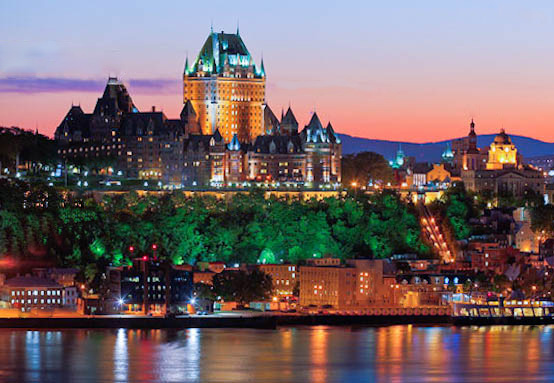Thousands of climate activists are on their way to Quebec City, where they will take to the streets as Canada’s provincial and territorial leaders will be meeting in Quebec City April 13 and 14 to discuss climate change.
The Act on Climate March on Saturday April 11 will be the largest of the planned events, snaking through the streets of Quebec City. More forward-looking, movement-building events will be scattered around the city throughout the weekend.
Equiterre, Nature Quebec, Greenpeace and others large Quebec NGOs have organized Act On Climate. Police have been given the March’s itinerary, making it a legal demonstration. The event is being promoted as family friendly.
The march, which on facebook has over 5,000 people listed to attend, has three core messages:
1. A call for climate protection
2. Saying no to expansion of the tar sands and pipelines
3. Saying yes to “just, green renewable energy”
Upcoming climate milestones abound. This July, Ontario Liberal Premier Kathleen Wynne will host Ontario’s Climate Summit of the Americas in Toronto coinciding with the Pan-Am Games, and in December, world leaders will meet in Paris and work toward a new international climate agreement.
In Canada, while TransCanada’s Energy East pipeline has been delayed it is far from scrapped, and Enbridge’s Line 9 is scheduled to carry tar sands oil from the west directly to Montreal within months. Both of these projects, promoted as essential to expand western heavy oil extraction, and consequently, many in the climate movement believe it must be stopped.
The marchers aim to make their voices heard and to strategize how to organize together, while provincial agendas at the premiers meeting vary.
What the provinces are expected to address in Quebec City
The Ontario Liberal government, led by Wynne, who wants a climate legacy the opposite of Harper’s, is expected to announce plans to join Quebec and California in their carbon cap-and-trade system.
British Columbia introduced a gradually increasing carbon tax in 2008, and pipeline projects in the province have been met recently with strong public opposition.
Alberta, facing existential questions about the future of its oil-dependant economy, is about to head to the polls for a May 5 provincial election.
At the Premier’s meeting, as with previous inter-provincial discussions, the leaders of Saskatchewan and New Brunswick are expected to side with Alberta Premier Jim Prentice in calling for any climate policy to at the same time permit expansion of the tar sands and corresponding increases in oil transportation, including pipeline construction.
The Quebec Liberals led by Philippe Couillard are trying to promote Quebec as open for business. This has including promoting drilling for oil in the St Lawerence, trying to end a moratorium on fracking, and in principle supporting pipeline projects like TransCanada’s Energy East
Recent Quebec protests
In contrast to the family friendly mandate of Act on Climate, nearly all demonstrations in the Quebec Printemps 2015 (Spring 2015) movement against austerity and the petro-economy have not provided itineraries to the police, and have thus been been deemed illegal. However, they’ve been tolerated, that is until police decided to use force to disperse crowds.
Seventy-five thousand people walked during the day on Thursday April 2 in downtown Montreal, and “illegal” night demonstrations have been common in Montreal and Quebec since the start of spring.
April 8, at Montreal’s UQAM University, police entered a building to stop students from striking. Police left the building only after a line of UQAM professors stood in between police and students, acting as a protective line. Later, at night, the building was occupied by hundreds of students until riot police broke through barricaded entrances and used force, such as tear gas, pepper spray, rubber bullets, batons and shields to end the occupation.
The Act on Climate March takes a less confrontational, more rule-abiding approach. While, the possibility for other types of demonstration remains open, there has not been widespread talk of such activities, and they would be unlikely to happen at the same time and place as the Act on Climate March.
Tips for following the action
#manifencours (protest in progress) is the best way to follow protests in Quebec, and #actionclimat is the tag specific for the Act on Climate March.
rabble will gather the tweets from the action here.
For reporting, Quebec Climate News provides translations of climate coverage, often focusing on Energy East.
You can find more information about March On Climate events here.
David Gray-Donald studied Environment & Biology at McGill University then worked there facilitating community sustainability projects and doing corporate social responsibility consulting. He is trying to undo our reliance on fossil fuels and educate himself on how to be a responsible white guy. He lives in Montreal and Toronto.



